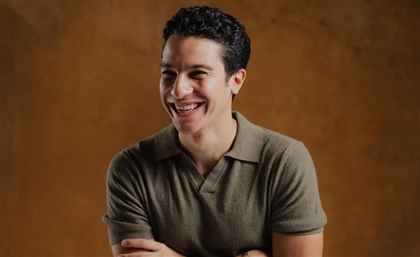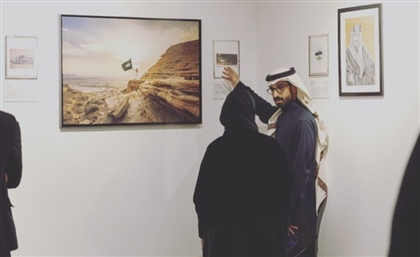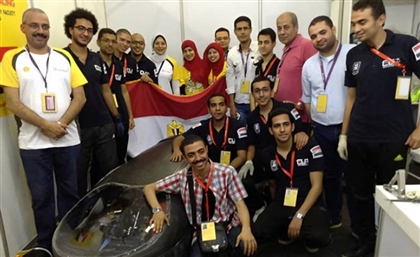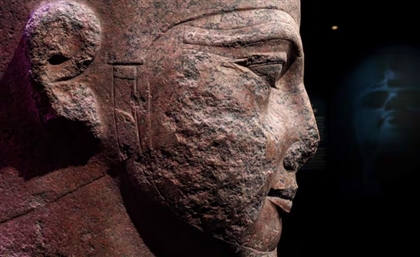Karim Shaaban: Capturing Egypt "Fi Youm"
We get the behind-the-scenes insight on what it took to create filmmaker Karim Shaaban's "Fi Youm," the only Egyptian film to take home an award at the 37th Cairo International Film Festival.
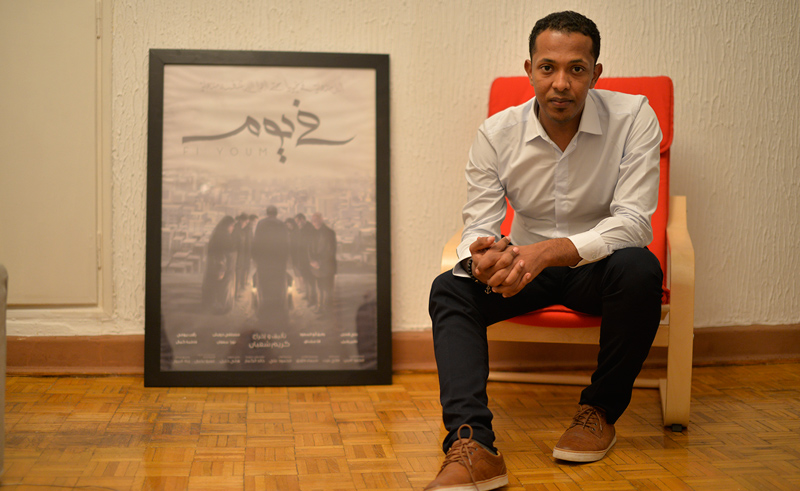
The Cairo International Film Festival is among the most prominent of 10 festivals worldwide that have a license to issue internationally acclaimed awards. The Festival just concluded its 37th round, held for what was the second time in a row at the Cairo Opera House. Location seems to have had a great impact on the experience of the attendees, as screenings were previously held at different cinemas around the city, making it hard for attendees to watch all the movies they wanted. Also, having everyone at the same place meant that filmmakers and critics had a chance to network with each other, making it an overall better experience. This year, Karim Shaaban's film Fi Youm, was the only Egyptian film to win an award.
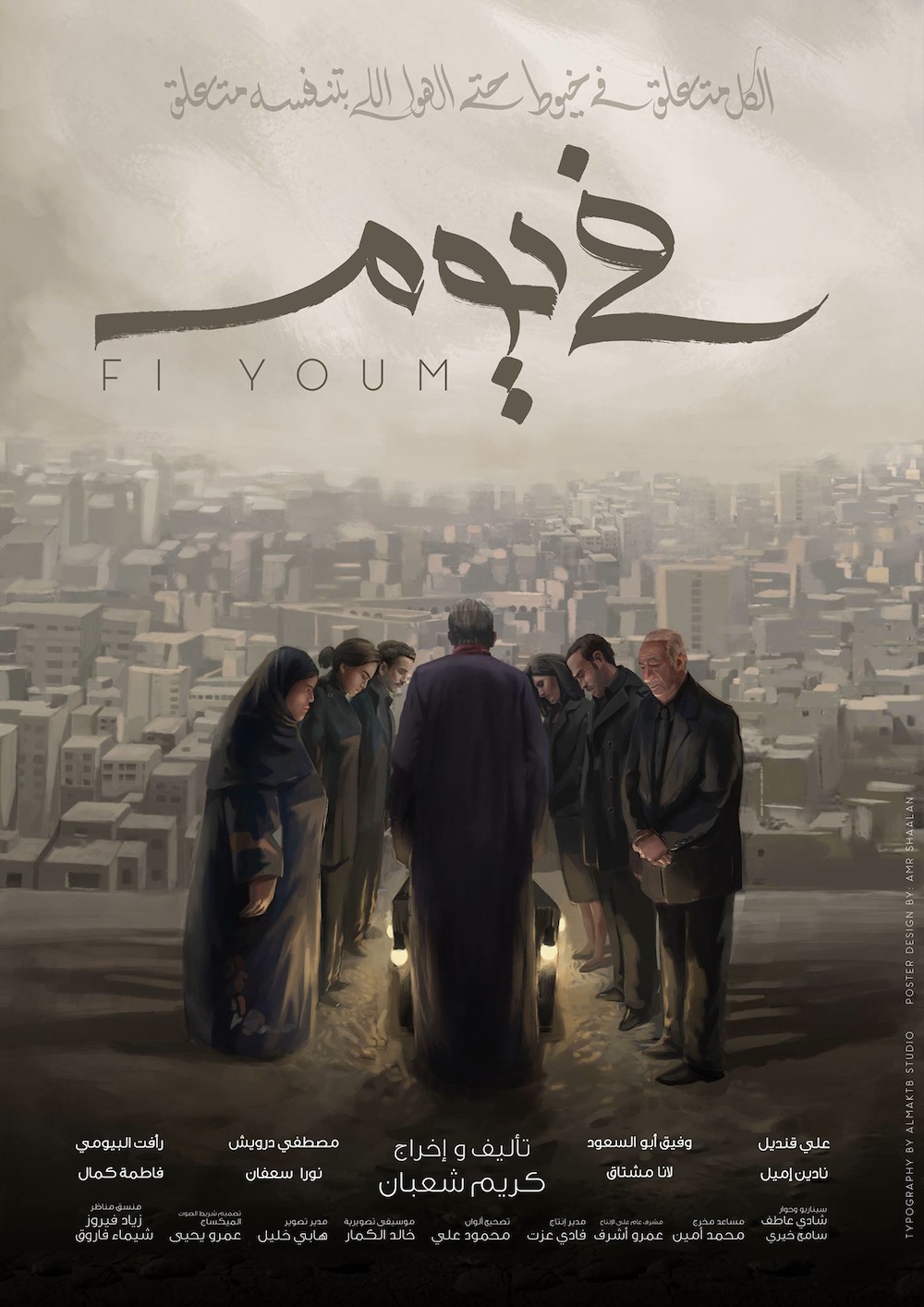
Shaaban is an Egyptian film maker who has been infatuated by cinema for the better part of his life. His passion for film started when he was still in high school; failing to get the grades required to be accepted into the Egyptian High Cinema Institute, he enrolled in an information systems college but didn't forget about cinema. His passion for film drove him to join a course with prominent Egyptian director, Basel Ramses. Coming out of his studies, Shaaban worked on several projects, later becoming an advertising director at JWT. He left JWT to pursue a career in cinema, filming several music videos during the revolution and directing a short film called Eih El 3ebara. Shaaban also worked in several film festivals around Europe. Returning to Egypt, he started filming Fi Youm in 2013, which he wrote and directed himself. Going into the festival he had no idea he would win an award; to his surprise, Shaaban won the Special Mention award. The production cost was self-financed, splitting the costs with his partner and Director of Photography, Habby Khalil. 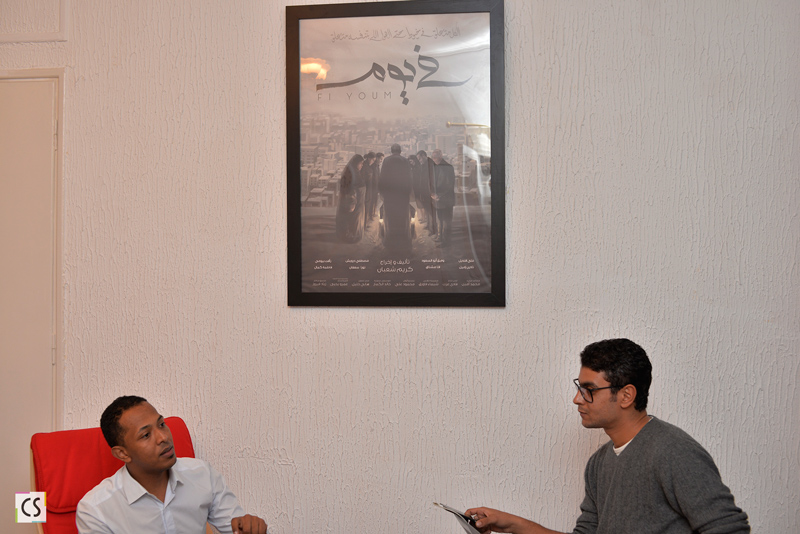 A conceptual film with no dialogue, Fi Youm gives an account of seven different stories. "The idea came to me while walking in the street," Shaaban tells us. "I noticed that most people were filled with grief and looked like they were carrying all the worries of the world on their shoulders." Throughout the movie was a recurring scene in which the entire cast is carrying a coffin, resembling this thought exactly. The characters range from a young man who wants to immigrate and is seen walking in a desert alone carrying a handbag, to a girl who has experienced sexual harassment, an old man that has retired and is living alone, a female doctor that refused to accept a job offer overseas because she wanted to help change her country, a mother that lost her son, and a young couple that were part of an incident where a police officer physically abused the man in front of his wife. "I tried to be diverse when I was making up the stories," Shaaban says, adding that it's "mostly to convey the message that this sample of stories serves to portray the entirety of Egyptian society; what might be causing us as individuals grief could be different, but there is a common denominator: we are all burdened by some kind of grief."
A conceptual film with no dialogue, Fi Youm gives an account of seven different stories. "The idea came to me while walking in the street," Shaaban tells us. "I noticed that most people were filled with grief and looked like they were carrying all the worries of the world on their shoulders." Throughout the movie was a recurring scene in which the entire cast is carrying a coffin, resembling this thought exactly. The characters range from a young man who wants to immigrate and is seen walking in a desert alone carrying a handbag, to a girl who has experienced sexual harassment, an old man that has retired and is living alone, a female doctor that refused to accept a job offer overseas because she wanted to help change her country, a mother that lost her son, and a young couple that were part of an incident where a police officer physically abused the man in front of his wife. "I tried to be diverse when I was making up the stories," Shaaban says, adding that it's "mostly to convey the message that this sample of stories serves to portray the entirety of Egyptian society; what might be causing us as individuals grief could be different, but there is a common denominator: we are all burdened by some kind of grief."
The filming itself is unbelievably good, often resembling that of a foreign film. Certain scenes are surreal while others are abstract - psychedelic, even - but the director doesn't try to entice emotions; his use of music is subtle, only complementing not directing the viewer, which is very uncommon in Egyptian cinema. The film alternates between the stories and repeatedly returns to the scene of the cast carrying a coffin and walking towards a grave. Heavy symbolism is an essential part of the film's aesthetic; the wardrobe, the décor, and the architecture all mean something in every scene. "In a movie with no dialogue, everything else has to speak," Shaaban explains, and it certainly did. The music score for the movie was sublime, the colours were graded perfectly, and all the actors were spot on.
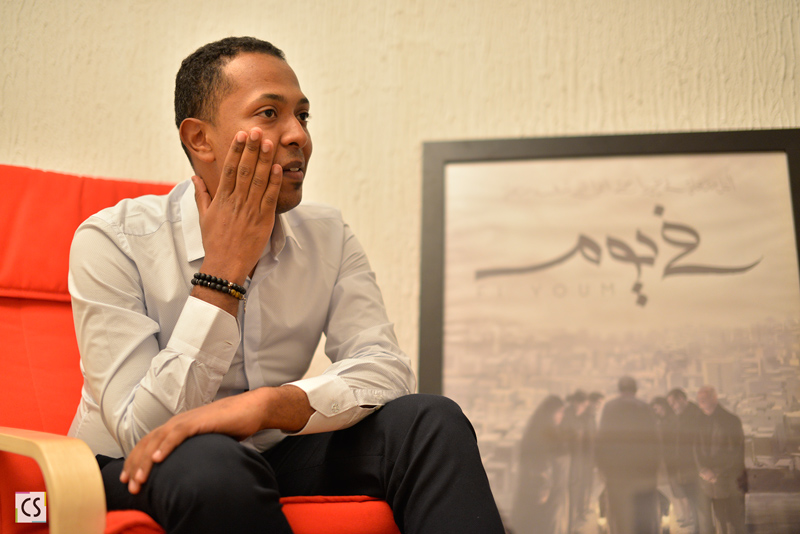
We learned that the picture was shot in 10 days and with one camera. Filming was spread out over two years, but only 10 days of actual shooting were needed because, according to Shaaban, they prepared intensely. The sound effects were all made in a studio without field recordings; although this is normal in Hollywood, it's not the norm here in Egypt. Locations included the Western Desert, a graveyard, a Cairo slum, and an eerie government hospital. When asked about the biggest obstacle they faced while filming, Assistant Director Mohamed Ameen concluded that it was sourcing locations in that "filming in public places becomes such a hassle. You need to have every piece of paperwork required and there are so many that it becomes infeasible for an independent film like this." He also mentioned that through his experience as an assistant director, he would have thought that "it would have been much harder to produce such a quality picture but thanks to everyone who helped us, it wasn't so bad."
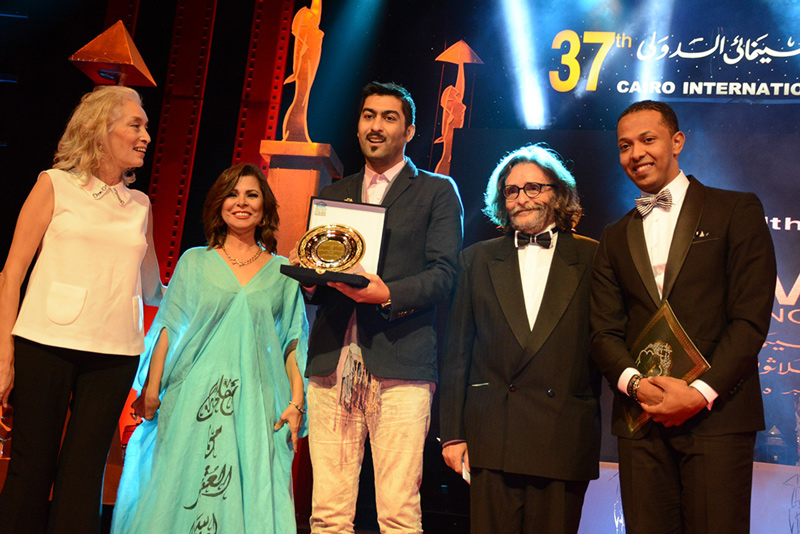 Shaaban insisted that the quality production was in the most part accredited to the talented cast and crew, and the production houses that opened their doors for him. "Some of these people worked for no fees, others accepted much less than their going rate," Shaaban said, particularly grateful for Yasser el Naggar's Mercury Productions where they did the colour correction and Tamer Mortada's Aroma Studios who did their DCP (digital cinema package). The cast included Mostafa Darwish, Wafeek el Souod, Nadine Emile, Fatma Kamal, Raafat el Bayoumy, Nora Saafan, and Aly Kandil. The crew consisted of Co-Producer Habby Khalil, Art Directors Shaimaa Farouk and Ziad Fayrouz, Production Manager Fady Ezzat, Production Supervisory Amr Ashraf, and Assistant Director Mohamed Ameen, with music composed by Khaled el Kammar and colour correction by Mahmoud Ali. Shaaban insisted that if it wasn't for those very talented individuals he would have never been able to produce such a film. This goes to show that this country is filled to the brim with talent that no one knows about, but thankfully, as soon as opportunities arise, they come out of hiding. What we are looking for now is more of this kind of conceptual film that has the power to ignite a passion for art in a country where the cinema fan has been conditioned to like smut and cheap action. We hope films like Fi Youm can play a role in reversing this, so that the golden age of Egyptian cinema might be revived.
Shaaban insisted that the quality production was in the most part accredited to the talented cast and crew, and the production houses that opened their doors for him. "Some of these people worked for no fees, others accepted much less than their going rate," Shaaban said, particularly grateful for Yasser el Naggar's Mercury Productions where they did the colour correction and Tamer Mortada's Aroma Studios who did their DCP (digital cinema package). The cast included Mostafa Darwish, Wafeek el Souod, Nadine Emile, Fatma Kamal, Raafat el Bayoumy, Nora Saafan, and Aly Kandil. The crew consisted of Co-Producer Habby Khalil, Art Directors Shaimaa Farouk and Ziad Fayrouz, Production Manager Fady Ezzat, Production Supervisory Amr Ashraf, and Assistant Director Mohamed Ameen, with music composed by Khaled el Kammar and colour correction by Mahmoud Ali. Shaaban insisted that if it wasn't for those very talented individuals he would have never been able to produce such a film. This goes to show that this country is filled to the brim with talent that no one knows about, but thankfully, as soon as opportunities arise, they come out of hiding. What we are looking for now is more of this kind of conceptual film that has the power to ignite a passion for art in a country where the cinema fan has been conditioned to like smut and cheap action. We hope films like Fi Youm can play a role in reversing this, so that the golden age of Egyptian cinema might be revived.
For more information about the film stay up-to-date by visiting their Facebook page.
- Previous Article KFC Shrimpo is Back!
- Next Article 10 Strictly Egyptian Moustaches That Will Inspire You This Movember




